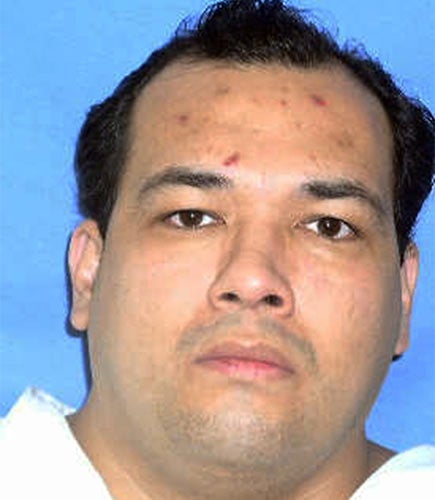Texas defies calls to delay execution of Mexican

Your support helps us to tell the story
From reproductive rights to climate change to Big Tech, The Independent is on the ground when the story is developing. Whether it's investigating the financials of Elon Musk's pro-Trump PAC or producing our latest documentary, 'The A Word', which shines a light on the American women fighting for reproductive rights, we know how important it is to parse out the facts from the messaging.
At such a critical moment in US history, we need reporters on the ground. Your donation allows us to keep sending journalists to speak to both sides of the story.
The Independent is trusted by Americans across the entire political spectrum. And unlike many other quality news outlets, we choose not to lock Americans out of our reporting and analysis with paywalls. We believe quality journalism should be available to everyone, paid for by those who can afford it.
Your support makes all the difference.Texas appeared set last night to proceed with the execution today of Humberto Leal Garcia Jnr, rebuffing requests for a delay from defence lawyers, the White House and the State Department.
The Mexican government has joined the chorus admonishing Texas, arguing that regardless of the guilt or innocence of Leal – who was convicted of raping and murdering a 16-year-old girl in 1994 by bludgeoning her with a slab of asphalt – the state is in violation of the Vienna Convention of Consular Relations, which requires foreign nationals have access to their consulates when taken into custody in another country.
Barack Obama has also exhorted the Supreme Court to intervene with a warning from the Solicitor General, Donald Verrilli, that the execution threatened US relations with Mexico. The State Department urged Governor Rick Perry to postpone the execution, pointing out that denying these rights to foreigners in the United States could lead to American citizens being treated similarly overseas.
With hours to go until the fatal injection is to be administered, the struggle over Leal became more tangled, pitting Texas against Washington – and Washington against Mexico and the United Nations.
The International Court of Justice ruled in 2004 that the US was in violation of the Vienna Convention in respect to about 50 Mexicans awaiting execution in the US. George W Bush, who was then President, ordered Texas to comply but the state refused.
"The violation of the Vienna Convention in Mr Leal's case was no mere technicality," Sandra Babcock, the lead defence lawyer, said. "The Mexican consulate would have provided experienced and highly qualified attorneys who would have challenged the prosecution's reliance on junk science to obtain a conviction."
She said Leal was never told of his right to phone his consulate.
The Supreme Court has so far declined to intervene in the case after ruling three years ago that it would require Congress to oblige Texas to obey the Vienna Accord. Last month, Senator Patrick Leahy introduced such legislation, but it has not yet passed. The White House is asking that the execution be delayed until January.
But there is little sign Mr Perry, who is considering a run for the Republican presidential nomination, will pay attention to the outside pressure.
Join our commenting forum
Join thought-provoking conversations, follow other Independent readers and see their replies
Comments